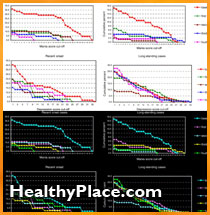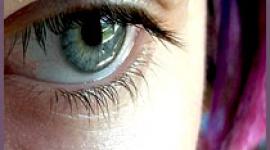Parent Version of the Young Mania Rating Scale (P-YMRS)
P-YMRS (Young Mania Rating Scale) helps parents assess whether their child might have the symptoms of bipolar disorder.
 The P-YMRS consists of eleven questions that parents are asked about their child's present state. The original rating scale (Young Mania Rating Scale), was developed to assess severity of symptoms in adults hospitalized for mania. It has been revised in an effort to help clinicians such as pediatricians determine when children should be referred for further evaluation by a mental health professional (such as a child psychiatrist), and also to help assess whether a child's bipolar symptoms are responding to treatment. The scale is NOT intended to diagnose bipolar disorder in children (that requires a thorough evaluation by an experienced mental health professional, preferably a board-certified child psychiatrist). This version has been tested in a pediatric research clinic with a high number of children with bipolar disorder. The child's total score is determined by adding up the highest number circled on each question. Scores range from 0-60. Extremely high scores on the P-YMRS increase the risk of having bipolar disorder by a factor of 9, roughly the same increase as having a biological parent with bipolar disorder. Low scores decrease the odds by a factor of ten. Scores in the middle don't change the odds much.
The P-YMRS consists of eleven questions that parents are asked about their child's present state. The original rating scale (Young Mania Rating Scale), was developed to assess severity of symptoms in adults hospitalized for mania. It has been revised in an effort to help clinicians such as pediatricians determine when children should be referred for further evaluation by a mental health professional (such as a child psychiatrist), and also to help assess whether a child's bipolar symptoms are responding to treatment. The scale is NOT intended to diagnose bipolar disorder in children (that requires a thorough evaluation by an experienced mental health professional, preferably a board-certified child psychiatrist). This version has been tested in a pediatric research clinic with a high number of children with bipolar disorder. The child's total score is determined by adding up the highest number circled on each question. Scores range from 0-60. Extremely high scores on the P-YMRS increase the risk of having bipolar disorder by a factor of 9, roughly the same increase as having a biological parent with bipolar disorder. Low scores decrease the odds by a factor of ten. Scores in the middle don't change the odds much.
The average scores in children studied were approximately 25 for mania (a syndrome found in patients with Bipolar-I), and 20 for hypomania (a syndrome found in patients with BP-2, BP-NOS, and Cyclothymia). Anything above 13 indicated a potential case of mania or hypomania for the group that was studied, while anything above 21 was a probable case. In situations where the odds of bipolar diagnosis are high to begin with (a child with mood symptoms with 2 parents having bipolar disorder), the P-YMRS can be extremely helpful. But for most groups of people, the base rate of bipolar disorder is unknown but low. Then, the most that a high score can do is raise a red flag (similar to having a family history of bipolar disorder).
Even a high score is unlikely to indicate a bipolar diagnosis. The P-YMRS is performing similar to the screening test for prostate cancer, where it will identify most cases of bipolar, but with an extremely high false positive rate. The P-YMRS is presently being studied in a community pediatrics practice to determine its validity in that setting. The P-YMRS is provided here for educational purposes only, and should not be used as a substitute for evaluation by mental health professionals.
Reference: The P-YMRS was revised from the Y-MRS originally developed by Young et al and was presented at the First Annual International Conference on Bipolar Disorders, Pittsburgh, June, 1996 (Gracious BL et al). Exploration of its statistical properties are outlined in: Discriminative Validity of a Parent Version of the Young Mania Rating Scale. Gracious, Barbara L., Youngstrom Eric A, Findling, Robert L, and Calabrese Joseph R et al. Journal of the American Academy of Child and Adolescent Psychiatry (2002) 41(11): 1350-1359.
next: Bipolar Disorder Diagnosis and Medical Tests
~ bipolar disorder library
~ all bipolar disorder articles
APA Reference
Tracy, N.
(2008, October 20). Parent Version of the Young Mania Rating Scale (P-YMRS), HealthyPlace. Retrieved
on 2024, June 20 from https://www.healthyplace.com/bipolar-disorder/articles/parent-version-of-young-mania-rating-scale-p-ymrs



